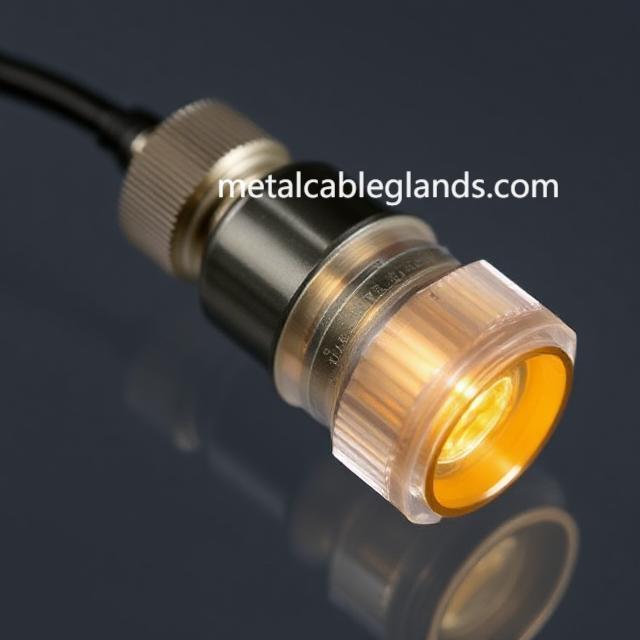Exploring Main Types of Cable Gland Reducers

In complex wiring environments, matching different cable diameters with corresponding gland sizes is often a challenge. This is where the Cable Gland Reducer becomes an essential accessory in industrial cabling systems. Acting as a size transition fitting, the Cable Gland Reducer allows cables of smaller diameters to be securely connected to larger threaded entries, ensuring both sealing reliability and mechanical integrity. Zhejiang Hongjue S Connector (HJSI) has specialized in the design and manufacturing of precision-engineered reducers that enhance adaptability and maintain system protection across multiple applications.
1. The Concept of a Cable Gland Reducer
A cable gland reducer functions as a transitional fitting between two incompatible thread sizes. For instance, when a cable entry port is larger than the gland thread, a reducer bridges the size gap to ensure a proper fit without compromising sealing performance. This principle is fundamental in achieving safe and efficient cable terminations in electrical, telecommunication, and automation systems. HJSI’s reducers are known for their dimensional precision, corrosion resistance, and ease of installation, which contribute to maintaining the system’s IP rating and grounding continuity.
The design intent behind these adaptors lies in minimizing the risk of dust, water, and mechanical stress infiltration while ensuring standardized assembly compatibility. Whether used in indoor control cabinets or outdoor junction boxes, the reducer ensures seamless system integration across multiple industries.
2. Major Types of Cable Gland Reducers
Cable gland reducers come in various types depending on application needs and environmental demands. The most common classifications include:
-
Metric-to-Metric Reducers – Designed for reducing one metric thread size to another smaller metric thread, ideal for European standard installations.
-
Metric-to-PG Reducers – Common in applications where metric glands need to connect with PG-threaded entries, maintaining compatibility with older equipment.
-
PG-to-PG Reducers – Often used in legacy systems where specific PG threading is required for continuity or replacement.
-
NPT Reducers – Essential for North American standards, allowing transitions between NPT thread sizes while preserving sealing integrity.
-
Custom Hybrid Reducers – Manufactured according to specific industry standards, particularly useful in specialized sectors such as renewable energy and offshore platforms.
Each type of reducer must meet strict dimensional tolerances to ensure that mechanical strength and environmental protection remain uncompromised. HJSI ensures these precision standards through automated CNC machining and stringent quality inspection.
3. Engineering Design and Manufacturing Insights
A high-quality reducer must maintain concentric alignment between the cable gland and enclosure entry. Misalignment can lead to sealing failure or cable damage under tension. HJSI’s engineering team focuses on thread accuracy, surface finish, and corrosion resistance treatments such as nickel plating and stainless-steel passivation.
The materials used—brass, stainless steel, aluminum, or high-strength polymer—determine the reducer’s resistance to environmental stress, chemical exposure, and thermal expansion. Brass remains the preferred choice for general industrial use due to its strength and electrical conductivity, while stainless steel reducers are favored in marine and renewable energy sectors for their long-term corrosion resistance.
Additionally, the design incorporates O-ring sealing systems and thread-locking features to prevent loosening under vibration or pressure. These engineering measures extend the service life of equipment and minimize maintenance requirements.
4. Application Scenarios Across Industries
Cable gland reducers are widely used in electrical distribution panels, control boxes, communication towers, and photovoltaic junction boxes. In renewable energy applications, they enable mixed cable sizes to fit modular equipment interfaces without requiring full component replacement.
In telecom systems, they provide standardized adaptability between older infrastructure and modern connection interfaces, ensuring continuous operation during network upgrades.
HJSI’s reducers are also widely implemented in automation systems and industrial machinery where modular design and multi-diameter cable routing are essential. Their versatility allows engineers to streamline installation, save costs, and reduce downtime caused by size incompatibilities.
5. Material Compliance and Global Standards
To ensure international compatibility, HJSI manufactures all reducers in accordance with ISO metric, PG, and NPT thread standards. The company also adheres to RoHS and REACH regulations, ensuring environmentally responsible production. Every unit undergoes thread testing, surface inspection, and dimensional verification before shipment, guaranteeing consistent reliability and mechanical performance.
The integration of advanced machinery and quality management enables HJSI to deliver custom reducer designs for OEM and large-scale industrial projects. These products not only ensure adaptability but also support long-term operational safety and performance stability under extreme environmental conditions.For detailed specifications and ordering information, visit https://www.metalcableglands.com/product .
- Sports
- Art
- Causes
- Crafts
- Dance
- Drinks
- Film
- Fitness
- Food
- Oyunlar
- Gardening
- Health
- Home
- Literature
- Music
- Networking
- Other
- Party
- Shopping
- Theater
- Wellness


